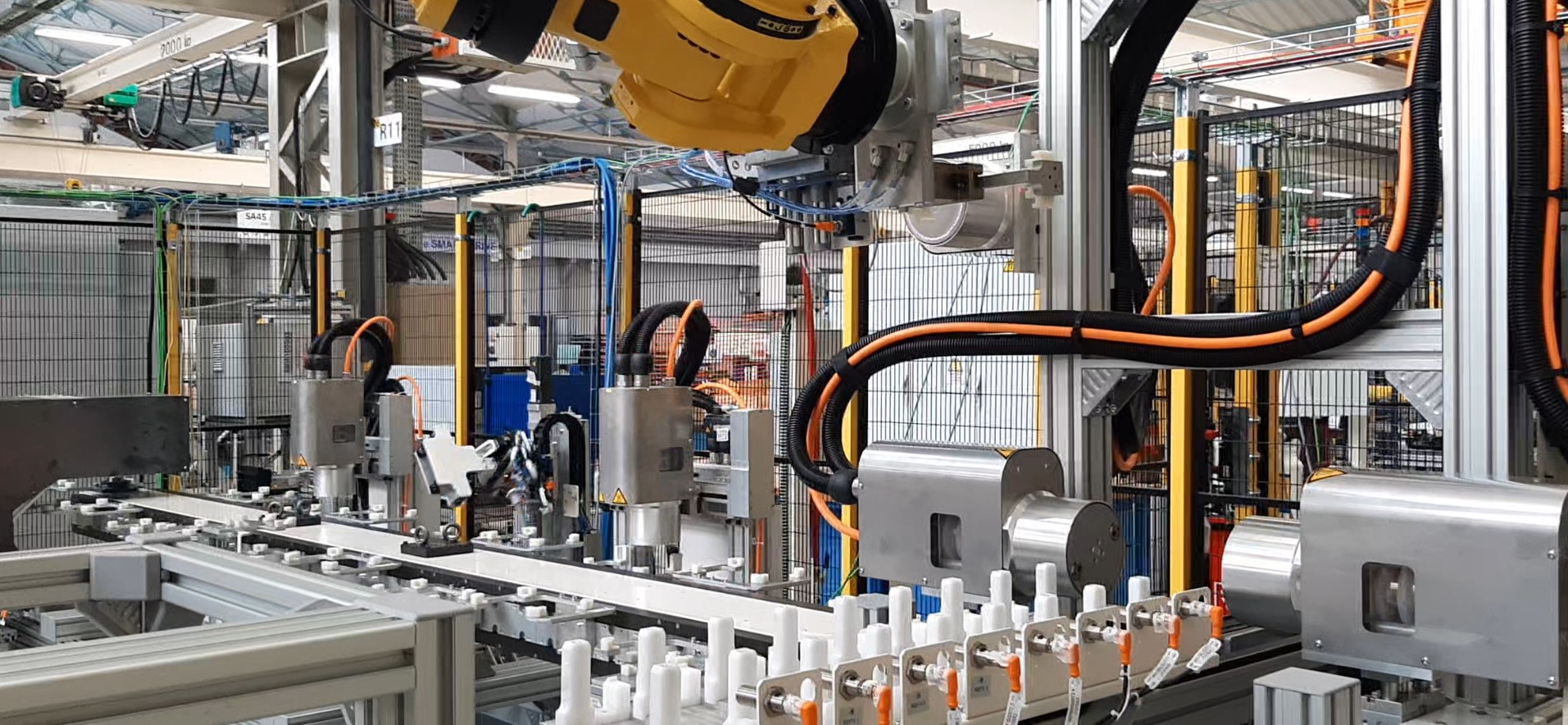Gian Carlo Tonzano introduces the drivers for electric mobility of the future according to Comau at “Smart Car” on Radio 24
The e-Mobility market is growing at a pace driven by the need to reduce carbon emissions in the transport sector to zero by 2050, as indicated by the European Green Deal. This is leading to an increase in demand for batteries, which is driving the transition to sustainable mobility.
According to an analysis by the Fraunhofer Institute, the demand for batteries in Europe will be 10 times higher in 2030 than today (up to 1.5 TWh). This means that companies will need to develop processes to build more efficient cells and modules, while also focusing on manufacturing next-generation technologies that deliver higher performance and lower costs.
During Radio 24’s “Smart Car” broadcast, Gian Carlo Tronzano, Head of Battery Cell Global Competence Center at Comau, presented the new transport electrification trends according to Comau and the company’s projects to facilitate a sustainable and circular transformation process. Let’s take a look.
Investing in next-generation solutions
When it comes to batteries for electric vehicles, we mainly refer to lithium-ion technology, explains Gian Carlo Tronzano, although the demand for new-generation batteries such as solid-state batteries will start to rise in the coming years. There are many reasons for this. First and foremost, solid state storage devices are safer as they use solid and non-liquid electrolytes, eliminating the risk of leakage and accidental contact with harmful substances. In addition, solid electrolytes allow for higher density by storing more energy in a smaller volume. This allows solid-state batteries to have a longer life, a smaller size and a faster recharge rate than conventional lithium-ion batteries.
Promote a European value chain
What are the main problems you encounter in battery production? According to Tronzano, the shortage of raw materials, which requires the search for new sources of supply, as well as the high cost of production processes, which is linked to significant investment in plant start-up and still excessive time for time to market, often makes the processing for the realisation of these technologies complex and costly. To meet the demand for batteries coming from the market and to promote the development of next-generation technologies, it will therefore be necessary to build a fully autonomous European value chain, Tronzano explains. This will enable strategic collaborations between the entities, institutions and companies involved, both locally and internationally, making the most of all the opportunities available in the European Union.
Develop new and advanced skills
In a new and constantly evolving market, such as electrification, it is crucial for companies to invest in upskilling and training innovative professionals who can develop powerful and effective technologies and processes for battery production, says Gian Carlo Tronzano. Just as Comau is doing, with the E-Skill programme, the upskilling and reskilling journey of its internal resources, which has involved more than 1,000 employees so far, with the aim of improving and strengthening the skills of selected internal teams in the field of electrification and e-Mobility. Added to this is Comau’s collaboration with companies and major universities (Politecnico di Milano, Politecnico di Torino and Politecnico di Bari) to foster an ongoing and cross-functional exchange of knowledge, supporting research PhDs and training programmes for young talent to be included in their workforce.
Recycling and reusing batteries in a circular way
One of the central themes of European policies is the need for recycling and re-use of modules and cells, encouraging projects to manage the end-of-life of batteries in a sustainable and circular way. Therefore, Tronzano explains, Comau is committed to developing solutions to facilitate and optimize the disposal and recovery of energy storage devices, with reduced costs and low impact on the environment and people. Among these projects is Flex-DB, Comau’s robotic system, within the European Flexible Battery Dismantling project, to automate the dismantling of exhausted electric batteries thanks to a flexible, repeatable and standardisable process that increases work efficiency and reduces risks for operators.
Listen to the full interview with Gian Carlo Tronzano broadcast by Smart Car on Radio 24:

